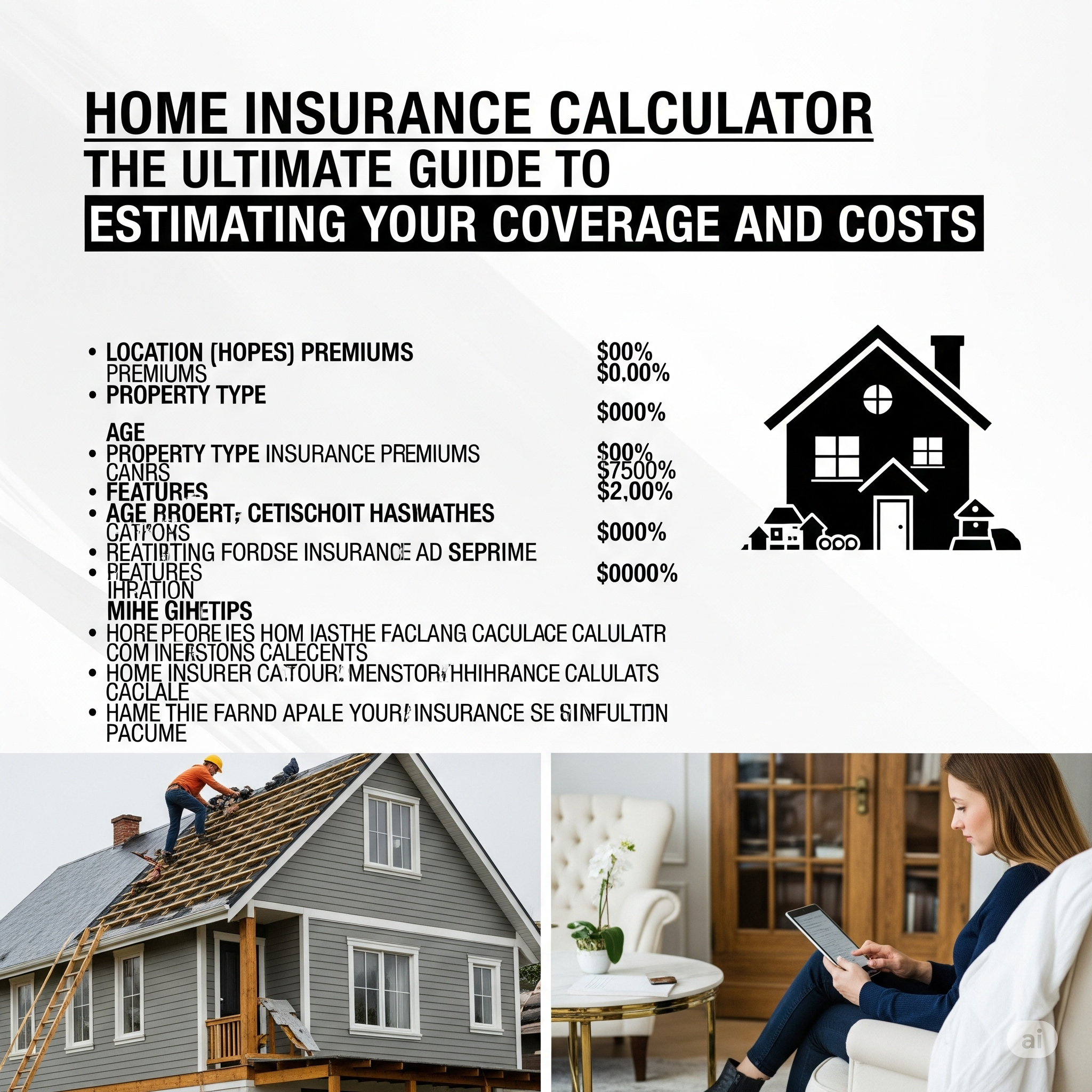Insurance
affordable insurance, auto insurance, auto insurance quotes, best insurance plans, business insurance, car insurance, cheap insurance, commercial insurance, disability insurance, health insurance, home insurance, home insurance quotes, insurance, insurance advice, insurance agents, insurance brokers, insurance companies, insurance coverage, insurance for families, insurance for seniors, insurance policies, insurance premiums, insurance rates, insurance reviews, life insurance, life insurance policies, life insurance quotes, long-term care insurance, personal insurance, renters insurance, term life insurance
Admin
How Do I Choose the Right Insurance Agent Near Me?
Choosing the right insurance agent is a crucial decision that can significantly impact your financial security. Whether you’re seeking coverage for health, life, auto, or home insurance, partnering with a knowledgeable and trustworthy agent ensures you get the best advice and policies tailored to your needs. This comprehensive guide will walk you through the steps to select the right insurance agent near you, provide answers to frequently asked questions, and offer key takeaways to help you make an informed choice.
Key Takeaways
- Assess Your Needs: Clearly define what types of coverage you require.
- Research Local Agents: Use online platforms and personal recommendations to find reputable agents.
- Verify Credentials: Ensure the agent is licensed by the IRDAI.
- Evaluate Experience: Choose an agent with relevant expertise in the insurance type you need.
- Understand Policies: Thoroughly review policy terms and conditions before committing.
Understanding the Role of an Insurance Agent
An insurance agent acts as an intermediary between you and the insurance company. Their primary role is to help you understand your insurance needs, recommend suitable policies, and assist with claims and policy management. Agents can be:
- Captive Agents: Represent a single insurance company and can only sell their policies.
- Independent Agents: Work with multiple insurers, offering a broader range of options.
Understanding this distinction is vital, as it influences the variety of policies and advice you receive.
Steps to Choose the Right Insurance Agent
1. Assess Your Insurance Needs
Before reaching out to an agent, evaluate your personal or business insurance requirements. Consider factors like:
- Type of Coverage: Health, life, auto, home, or business insurance.
- Coverage Amount: Determine the sum insured based on your assets and liabilities.
- Budget: Establish a premium range you’re comfortable with.
This self-assessment will guide your discussions with potential agents.
2. Research Local Agents
Utilize online resources to find insurance agents in your vicinity. Websites like Policybazaar and Coverfox allow you to compare agents and read reviews. Additionally, ask for recommendations from friends, family, or colleagues who have had positive experiences.
3. Verify Credentials and Licensing
Ensure the agent is licensed by the Insurance Regulatory and Development Authority of India (IRDAI). A licensed agent is legally authorized to sell insurance policies and must adhere to industry standards and ethics.
4. Evaluate Experience and Expertise
Inquire about the agent’s experience in the industry and their specialization. An agent with a deep understanding of specific insurance types can provide more tailored advice. For instance, if you’re looking for health insurance, an agent specializing in health policies would be more beneficial.
5. Assess Communication and Availability
Effective communication is key. Choose an agent who is responsive and willing to explain policy details in simple terms. Discuss their availability for consultations and support, especially during claim processes.
6. Understand the Range of Policies Offered
Determine whether the agent offers policies from multiple insurers (independent agent) or a single insurer (captive agent). Independent agents can provide a wider array of options, potentially leading to better coverage at competitive prices.
7. Review Terms and Conditions
Before finalizing any policy, thoroughly review the terms and conditions. Pay attention to coverage limits, exclusions, claim processes, and renewal terms. A reputable agent will ensure you understand all aspects of the policy.
How Do I Choose the Right Insurance Agent Near Me? (Continued)
8. Evaluate Customer Service and Support
Customer service plays a pivotal role in your overall satisfaction with your insurance agent. It’s essential that your agent not only helps you secure coverage but also remains available when you need assistance. Look for an agent who is proactive in checking in with you during policy renewals, claims, or changes in your personal circumstances.
9. Look for Transparency and Honesty
A good insurance agent should be transparent about the details of the policy you are purchasing. They should not push you into buying something you don’t need or fail to disclose important aspects of the insurance contract. An ethical agent will prioritize your best interests and work within your budget.
One red flag to watch out for is an agent who seems overly focused on selling you a product without thoroughly explaining it. Always trust your instincts – if something feels off, it might be worth seeking a second opinion.
10. Check Online Reviews and Testimonials
While word of mouth is essential, you should also check online reviews and testimonials to gauge the reputation of the agent or agency you’re considering. Websites like Yelp, Google Reviews, and Trustpilot offer insights into the experiences of other clients. Pay attention to common themes, both positive and negative, as they can help you understand how well the agent serves their clients.
It’s also valuable to see how the agent responds to negative feedback. If they address concerns professionally and seek to improve their services, that’s a good sign of reliability.
11. Ensure They Have a Strong Network
An agent’s network with insurers can play a significant role in the value they provide. If an agent works with only one company (as is the case with captive agents), they may be limited in offering different policy options, which could result in higher premiums or coverage gaps.
On the other hand, independent agents who work with multiple insurance providers can offer you a variety of choices. If one provider’s prices increase, an independent agent can shop around for competitive alternatives that still meet your needs.
Having a strong network of partners can ensure the agent is capable of tailoring a policy to your needs, whether you’re looking for comprehensive home insurance, affordable auto insurance, or customized life coverage.
Factors That May Influence Your Decision
Choosing the right insurance agent is more than just finding someone with the best reviews or the lowest premium rates. Several factors influence your decision-making process:
Specialization of the Agent
Different types of insurance require different expertise. For instance, an auto insurance agent may not have the same depth of knowledge regarding health insurance policies. Here’s how to approach this:
- Auto Insurance: Look for an agent with a deep understanding of vehicle-related policies, including liability, collision, and comprehensive coverage.
- Home Insurance: A home insurance specialist can help you navigate policy terms regarding structural damage, personal property, and natural disasters.
- Health Insurance: Health insurance agents are particularly helpful in guiding you through complex policies, including those offered through the marketplace.
- Life Insurance: Life insurance agents should have a comprehensive understanding of term vs. whole life policies, as well as riders and beneficiaries.
If you’re looking for more than one type of coverage, consider an agent who is experienced in multiple areas or even a financial advisor with broad expertise.
Agent’s Reputation in the Industry
Reputation goes hand-in-hand with experience and customer service. A well-established insurance agent will often have a proven track record, positive client relationships, and a strong standing in the industry.
To gauge an agent’s reputation, you can:
- Check for Professional Designations: Look for certifications like Chartered Property Casualty Underwriter (CPCU) or Certified Insurance Counselor (CIC), which indicate a high level of professionalism and industry expertise.
- Industry Affiliations: See if the agent is part of recognized professional organizations such as the National Association of Insurance Agents (NAIFA) or the Insurance Agents & Brokers (IA&B).
The Personal Connection
An important but often overlooked factor is the personal connection you establish with the agent. An insurance agent isn’t just someone you meet once and forget; they’re your partner in securing your financial well-being. A personal connection will allow you to trust them more deeply, which is essential when discussing such vital matters as life insurance, health coverage, and home security.
During your initial consultation, observe the agent’s behavior and communication style. Are they attentive, respectful, and patient with your questions? Do they make the effort to understand your unique needs? These factors contribute to the long-term working relationship you’ll have with them.
Evaluate the Claims Process
Insurance is only as good as the claims process it supports. A policy that sounds good on paper is not worth much if the claims process is slow, confusing, or difficult to navigate. Ask your potential agent about the claims process upfront:
- How quickly can claims be filed?
- What are the steps involved?
- What support does the agent provide during the claim process?
A good insurance agent should be able to walk you through the process and ensure that your claims are handled with efficiency and care.
How Do I Choose the Right Insurance Agent Near Me? (Continued)

12. The Importance of Customer Reviews and Testimonials
In today’s digital age, online reviews and testimonials are incredibly powerful tools in assessing the credibility and quality of an insurance agent. Websites like Google, Yelp, and Trustpilot can provide firsthand accounts from past and current clients about their experiences. Here are a few key points to consider when evaluating reviews:
- Overall Rating: Look at the average rating. A high rating (above 4 stars) is a good indicator that the agent provides reliable service.
- Feedback on Claims Process: Pay special attention to comments related to the agent’s handling of claims. Positive feedback here often signals an agent who is efficient and supportive in helping clients navigate the claims process.
- Response to Complaints: It’s also essential to see how the agent responds to negative reviews. A professional, empathetic response to criticism shows that the agent cares about customer satisfaction and is willing to rectify issues.
Beyond online reviews, you can also ask the agent for referrals to speak directly with past clients. Personal testimonials can offer additional context about their service quality.
13. Review the Agent’s Commitment to Continuous Learning
Insurance policies are ever-evolving, with frequent changes in laws, regulations, and market conditions. An agent who is dedicated to continuous learning and staying updated with the latest industry trends and product offerings will be better equipped to offer you the most relevant advice.
Ask the agent about any professional development activities they engage in, such as:
- Continuing Education: Many states and countries require agents to take continuing education courses. An agent who is committed to their professional development will usually have specialized knowledge.
- Industry Certifications: Certifications like Certified Insurance Counselor (CIC), Chartered Life Underwriter (CLU), or Certified Risk Manager (CRM) demonstrate an agent’s expertise and commitment to excellence in the industry.
An agent with these credentials will provide more in-depth and up-to-date advice on policy changes and help you navigate evolving risks.
14. Understand the Agent’s Commission Structure
Insurance agents often earn their income through commissions from the policies they sell. Understanding an agent’s commission structure can help you gauge their motivations and how they might approach recommending policies. While most agents are ethical and transparent, it’s important to ask questions that clarify any potential biases toward selling particular insurance policies.
Here are a few important things to understand:
- Commission-Based Compensation: Agents are typically paid a percentage of the premiums you pay for your policy. If they recommend a policy with a higher premium, it could be because they earn a higher commission from that policy. This isn’t inherently bad, but it’s important to ensure the policy is genuinely the best option for you.
- Conflict of Interest: If you’re working with a captive agent who only sells policies from one company, be aware that their recommendations may be influenced by the company’s goals, which may not necessarily align with your best interests. Independent agents, however, can offer policies from multiple insurers and may have a wider array of options that suit your needs better.
It’s always a good idea to ask upfront whether the agent receives commission-based compensation and how their payment structure works. Transparency here will help you feel more confident in your decision.
15. Consider the Agent’s Availability for Post-Purchase Support
An often-overlooked aspect of selecting an insurance agent is the level of support they provide after the policy is purchased. Insurance isn’t a “set it and forget it” purchase; it requires regular check-ins, renewals, updates, and assistance with claims.
When choosing an agent, it’s crucial to ask the following:
- Ongoing Support: Will the agent be available for periodic policy reviews, or only when you purchase a new policy? A good agent will offer periodic check-ins to ensure your coverage still meets your needs.
- Availability During Claims: When you need to file a claim, your agent should be readily available to help guide you through the process. Ask about the agent’s availability in the event of a claim, especially during weekends, evenings, or emergencies.
16. The Role of Technology in Choosing an Insurance Agent

In the modern world, technology plays a huge role in how insurance agents interact with clients. Whether through online portals for quoting, claims submission, or simply handling your account, a good agent should utilize technology to make your insurance experience more efficient and accessible.
Consider the following:
- Online Tools and Resources: Does the agent provide access to online tools that allow you to easily manage your policy? This includes digital platforms for paying premiums, filing claims, and reviewing policy documents.
- Communication Channels: Does the agent offer multiple communication options like phone, email, live chat, and even text messages? A good insurance agent will make it easy for you to get in touch with them when you need assistance.
- Virtual Consultations: With more people preferring remote interactions, many agents now offer virtual meetings for consultations, claims, and policy discussions. Consider whether this option is available if it’s more convenient for you.
17. Understand the Agent’s Approach to Risk Assessment
An essential part of selecting an insurance agent is understanding how they assess your risks and recommend coverage accordingly. A strong agent will work with you to assess your personal or business risks, considering everything from your lifestyle to potential liabilities.
Here’s what you should expect from a competent agent:
- Comprehensive Risk Evaluation: They should conduct a detailed evaluation of your needs, whether it’s for home insurance, health, or life. For instance, they should ask about your assets, liabilities, family situation, and long-term goals to ensure the policy fits you best.
- Tailored Recommendations: Based on their assessment, the agent should provide customized recommendations rather than offering generic solutions. For example, if you live in an area prone to floods or earthquakes, they should offer you coverage that specifically addresses these risks.
An agent’s ability to accurately assess your risks and recommend the right level of coverage is a strong indicator of their professionalism and expertise.
Also Read :-What Does Travel Insurance Typically Cover?
Conclusion
Selecting the right insurance agent is a critical step in securing your financial future. By assessing your needs, researching local agents, verifying credentials, and understanding policy details, you can make an informed decision. Remember, a trustworthy and knowledgeable agent is not just a service provider but a partner in safeguarding your assets and well-being.
FAQs
1. Why should I choose a local insurance agent?
A local agent is familiar with regional risks and regulations, offering personalized service and quicker response times.
2. What’s the difference between a captive and an independent agent?
Captive agents represent one insurance company, while independent agents work with multiple insurers, providing a broader range of options.
3. How can I verify an agent’s license?
You can verify an agent’s license through the IRDAI’s official website or by requesting the agent’s license number.
4. What should I ask an insurance agent before purchasing a policy?
Inquire about coverage details, premium amounts, exclusions, claim processes, and any additional fees.
5. Can an insurance agent help with claims?
Yes, a good agent will assist you throughout the claim process, ensuring all necessary documentation is submitted and following up with the insurer.
6. Are there any fees for using an insurance agent?
Typically, agents earn commissions from the insurance company, so their services are usually free for policyholders.
7. How often should I review my insurance policies?
It’s advisable to review your policies annually or after significant life events, such as marriage, purchasing a home, or having children.













